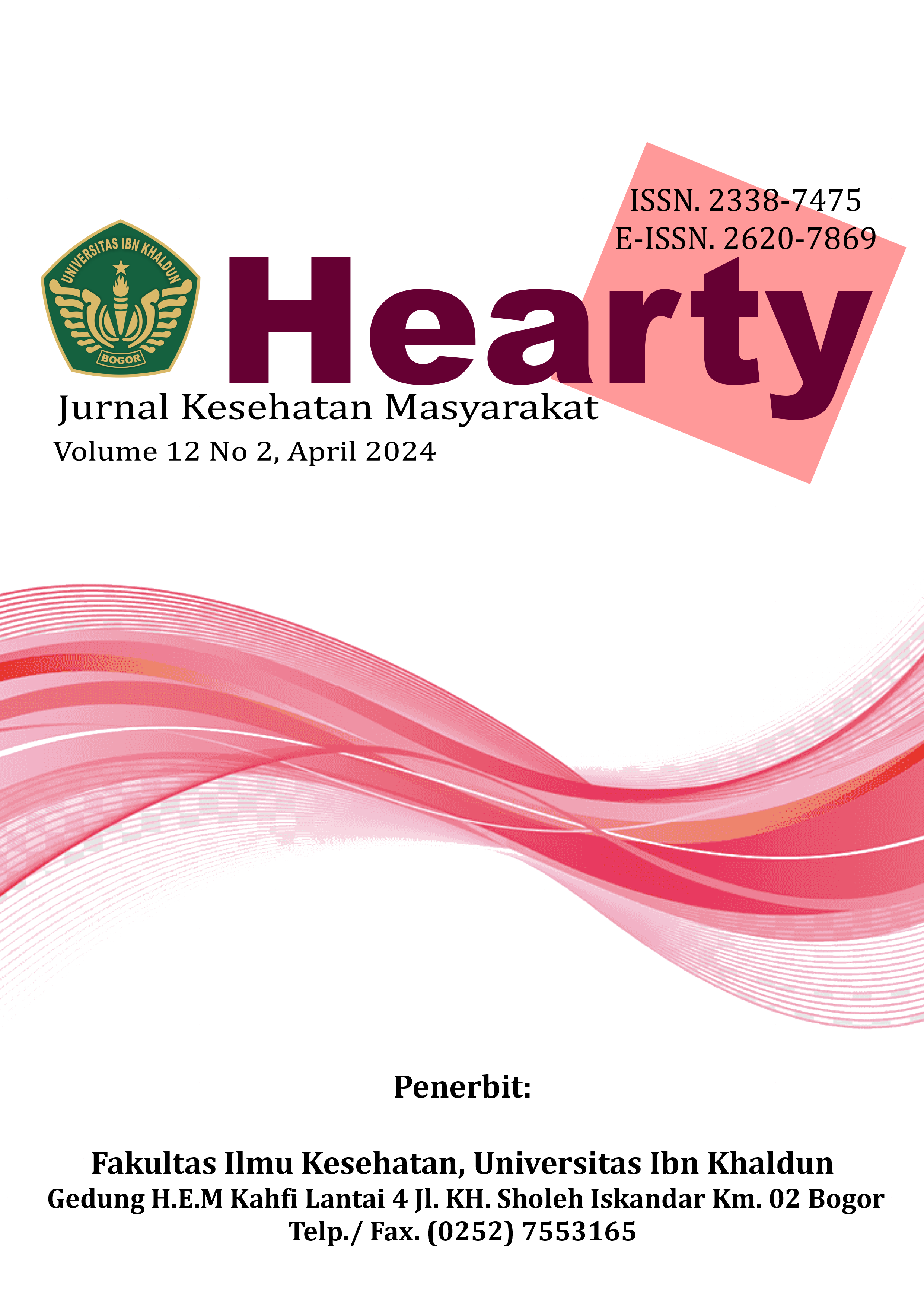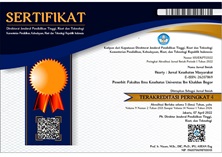ANALYSIS OF HEALTH PROBLEMS OF THE HIV/AIDS PROGRAM IN THE MADIUN CITY POPULATION CONTROL AND FAMILY PLANNING HEALTH SERVICE
DOI:
https://doi.org/10.32832/hearty.v12i2.16248Abstract
Background: Based on UNAIDS data from 2019, Southeast Asia has 3.8 million of the world's HIV-positive people. In Asia, Indonesia has the fifth-highest risk of HIV/AIDS infection. According to the Madiun City Population Control and Family Planning Health Service, there will be 148 more HIV/AIDS cases in 2022, indicating a continued increase in cases. Analyzing the health issues with the HIV/AIDS Program at the Madiun City Population Control and Family Planning Health Service is the goal of this study. Method: This research is a descriptive study conducted during July–August 2023. Determining problem priorities using the Hanlon method and identifying the root causes of the problem. Primary data collection was carried out using the interview method, or in-depth interviews. Results: The results of determining problem priorities show that PLWHA who are new to ARV have not met the target of 95% and are based on the number of cases of PLWHA who are new to ARV from 2021, namely 29 cases and in 2022 there has been an increase of 43 cases. Identification of the root cause of the problem was carried out through interviews or in-depth interviews, that there were several factors that caused the occurrence of new PLWHA on ARVs, namely the low awareness of PLWHA to start treatment, the attitude of PLWHA who did not accept their HIV status so they did not want to start treatment and the lack of support from family/peer friends/ This is due to the lack of knowledge and information related to HIV/AIDS. Conclusion: This requires strengthening the mentoring program for PLWHA by providing assistance not only to PLWHA who have started treatment but all those who have been found to be immediately accompanied by NGOs, as well as involving local community leaders to promote anti-stigma.
























